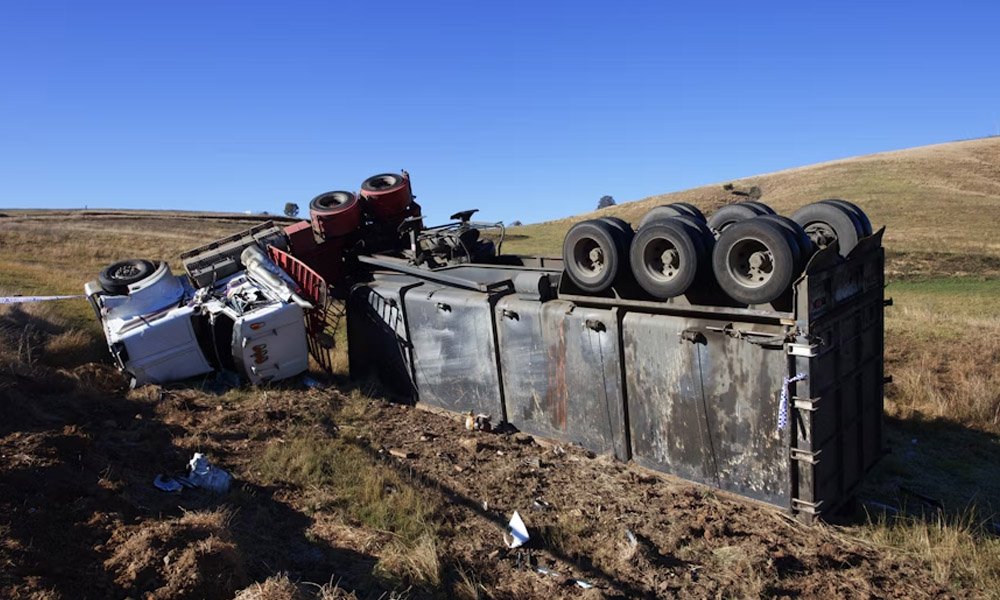Charlotte’s highways never seem to slow down. Tractor-trailers move along I-77, I-85, and the I-485 beltline at all hours, carrying goods that keep businesses running. These trucks are essential to our economy, but there’s another side to the story. Because of their size and weight, they can also be among the most dangerous vehicles on the road. When one collides with a passenger car, the outcome is often devastating. For the people in smaller vehicles, injuries can change everything in a matter of seconds.
In times like these, reaching out to an experienced Charlotte truck accident lawyer isn’t just about hiring someone to handle the paperwork. It’s about having a steady hand to bring clarity to the chaos, someone who will safeguard your rights and help your family find a way forward.
Why These Accidents Hit So Hard
An 18-wheeler can weigh up to 80,000 pounds. To put that in perspective, that’s more than 20 times the weight of most cars on the road. With that kind of force, it’s no surprise that crash survivors are often left facing broken bones, brain injuries, or spinal damage that takes months—sometimes years—to heal. Meanwhile, truck drivers themselves may walk away relatively unharmed.
The Rules That Govern Trucking in North Carolina
Truck crashes aren’t handled like routine car accidents. They involve layers of state and federal regulations designed to keep everyone safe. For example, drivers must be at least 18 to operate within North Carolina and 21 to drive across state lines. Federal law limits how many hours a driver can be behind the wheel before they’re required to rest. The legal alcohol limit for commercial drivers is just 0.04%—half of what it is for other motorists. Routine medical exams and random drug testing are required.
Trucking companies also carry responsibilities. They must maintain their vehicles, respect weight restrictions, and carry higher levels of insurance. When companies cut corners—skipping safety checks or pressuring drivers to meet unrealistic deadlines—that’s when tragedies often happen.
Who Could Be Responsible?
When a truck accident occurs in Charlotte, the blame doesn’t always stop with the driver. A trucking company might be at fault for poor hiring practices or failing to supervise its employees. In some cases, a parts manufacturer, a mechanic, or even a cargo loader could share liability if faulty brakes or overloaded trailers played a role.
That is why these cases often require investigations that are detailed. Attorneys dig into logbooks, “black box” data, and maintenance records to uncover what really happened. Without that work, families are often left in the dark about the truth behind their crash.
Support and Recovery in Charlotte
The Charlotte community does have resources to lean on. North Carolina has taken steps to make its roads safer. In Charlotte, there are efforts in place to make the roads safer. The Highway Patrol carries out inspections to catch safety issues of trucks before they cause an accident.
Drive for Life NC also encourages drivers to stay alert and practice safe habits. The Victim Assistance Network provides counseling and guidance. Hospitals like Atrium Health’s Carolinas Medical Center deliver the kind of specialized care required for serious injuries.
These kinds of resources can lift a bit of the weight off families’ shoulders and remind them that they don’t have to face the long road to recovery completely alone.
Moving Forward After a Truck Accident
A truck accident in Charlotte can make lives miserable, uncertain and stressful. When you work with Stewart Law Offices, you’re not just hiring a lawyer—you’re reaching out to real people who understand what you and your family are going through. They take on the heavy lifting, from holding the right parties accountable to pushing back against insurance companies, so you’re not left carrying it all yourself.
Life after a crash can feel messy and uncertain, but with the right support beside you, taking the next step becomes a little less overwhelming.


